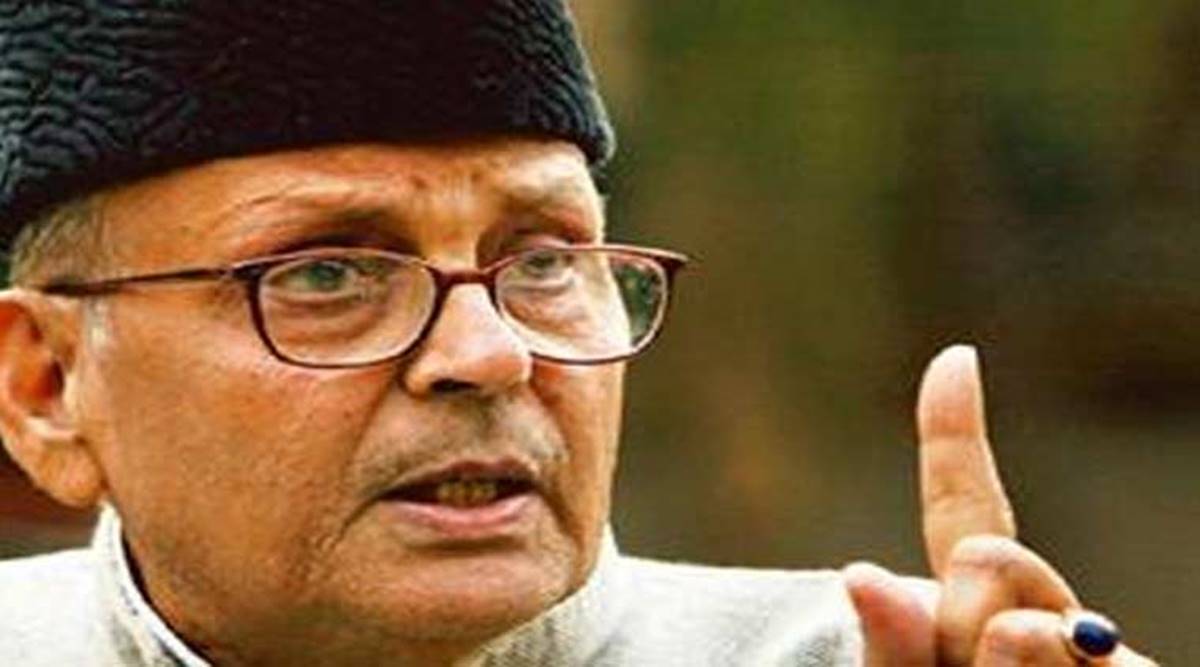 Former Prime Minister V P Singh. (File)
Former Prime Minister V P Singh. (File) Who was Vishwanath Pratap Singh? A “king” at the age of 10, a prime minister at 58, and a rebel all his life. But to me, he was babba, grandfather, who gave us a talisman, “Never falter against injustice. Let knowledge, compassion and truth guide you to dharma.” In a lifelong battle against communalism, corruption and corporate exploitation, he fought to protect the voiceless, oppressed minorities and farmers. Today is his 90th birthday.
V P Singh and social justice go hand in hand. From an early age, he rebelled against social injustices by participating in inter-caste meals, shramdan and bhoodan. From his days as chief minister of UP, to exposing corporate corruption as Union finance minister between 1984-87, he never abandoned his talisman. He even championed the cause of farmers and the global south at various GATT meetings by vehemently opposing the inclusion of agriculture in GATT and, later, WTO. He was reprimanded for his honesty and transferred. But that didn’t stop him from exposing corruption in defence contracts. As defence minister, he unearthed the HDW submarine scam, right before the Bofors scandal broke out. Soon after, the Congress expelled him.
But India embraced him. Singh emerged as India’s seventh prime minister. He knew that neither the BJP nor the Congress would let the third front survive. “When I became prime minister, the clock started to tick. My goals were clear — social justice through the Mandal Commission and farmers’ welfare,” he would recount.
In office, he quickly introduced an affirmative action programme for the Other Backward Classes (OBC) by implementing the Mandal Commission report. This step brought a social revolution. It created a new doorway through which millions of disenfranchised Indians could now access power. His first goal was complete.
For Singh, Indian farmers were India, and he had promised to heal their wounds. By announcing India’s first loan waiver worth Rs 10,000 crore, he kept his promise. He explained the rationale behind the decision thus: “If Indian governments have encouraged farmers to jump in a ditch, shouldn’t we pull them out too? Bad policy and unsound agricultural models are the culprits for the falling prices and farm debt, and the Centre has a moral obligation to help Indian farmers.”
He also dedicated 50 per cent of the total national resource to rural India and agriculture. He put emphasis on irrigation and overall improvement of farming. Before his farm vision could grow wings, the BJP withdrew support after L K Advani was arrested during his rath yatra. The Babri masjid remained intact but Singh’s government fell. His second goal, thus, remained incomplete.
By 1991, India was a liberalised country. The Congress under P V Narasimha Rao had also agreed to include agriculture in GATT and WTO. Having been involved in GATT discussions in Uruguay, Kenya, etc, he knew corporate behemoths were salivating over the gains they could make from Indian farmers. In 1992, he called the Dunkel Draft “a death knell” for farmers and protested in the Rajya Sabha. He started meeting farmers, agri-experts and other politicians to develop a consensus for protecting farmers’ rights. This included setting up a working group of four ex-PMs to bolster farmers’ causes. He was the guiding force for many farmer leaders and movements against globalisation, WTO, corporatisation etc.
By 2006, the crisis had reached home. The government’s decision to acquire land from farmers in Dadri, UP, and give it to the Reliance group at a hugely subsidised rate to set up a power plant inflamed Singh. Despite suffering from double kidney failure and cancer, he embarked on a plan to support the farmers. “The corporate progress cannot be synonymous with India’s progress and we cannot kill farmers and take their land and enrich big corporations. This is evil,” he often said. Singh repeatedly warned that globalisation aims to create monopolies and trans-national empires. “Indian agriculture can’t escape because our government will auction Indian farms and farmers for agri-dollars. Selling our land is selling sovereignty,” he said. Today, the food-farm industry is highly concentrated with a handful of companies controlling the global seed, fertilisers to meat supplies.
Singh knew that unless farmers became a political class or political coalition, they would not be heard. He started the Kisan Manch, which organised meetings and gheraos across the country. His mantra was: “Safeguard the farmers, save India.” The foundation was laid, but he had too little time left. He died in 2008, hoping that India will never see a “company raj” again.
The writer, a policy analyst, is the grandson of V P Singh
- The Indian Express website has been rated GREEN for its credibility and trustworthiness by Newsguard, a global service that rates news sources for their journalistic standards.

